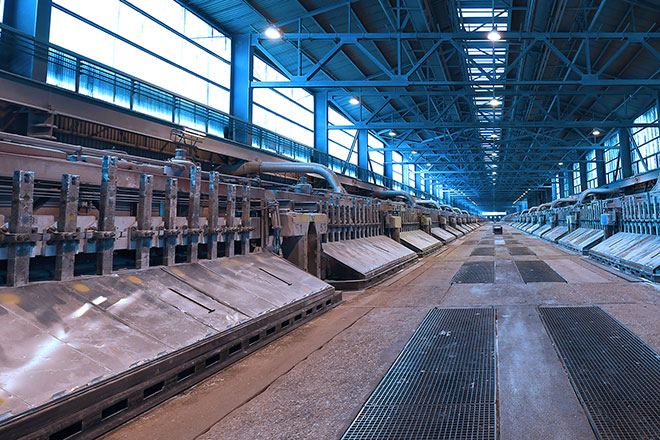
Trimet Aluminium SE began trial operation of its “virtual battery,” a technology aimed at making the energy intensive smelting process more flexible. The aluminum electrolysis process has traditionally required a constant supply of energy to remain stable, but this new approach allows for variations in energy input and more control over the smelting process.
“We have reinvented the electrolysis process for the production of aluminium. For the first time, we will be able to vary the energy supply during operation significantly. This will allow us to react to changes in the electricity supply, which will benefit the power supply to households in Essen,” says Philipp Schlüter, CEO of TRIMET. “As an aluminium producer, we are naturally an energy-intensive company. As such, however, we are also a valuable partner for the energy revolution.”
The €36 million trial installation converted a total of 120 furnaces in hall one of its Essen plant, which will be able to consume either 25% more or 25% less energy for up to 48 hours. The energy requirement can also be reduced to zero for up to an hour, if necessary. This means up to 2,000 megawatt hours of electricity can be stored for use in the energy revolution.
The “virtual battery” creates a huge power storage facility — with the capacity of medium-sized pumped electrical storage — which makes it easier to take advantage of peak power prices and to integrate inconsistent energy flows from renewable energy sources, such as wind and solar, into the power grid.
Trimet and Bergische Universität Wuppertal developed a controllable heat exchanger that keeps the temperature in the furnace constant despite an unsteady energy supply. The aluminum company also signed a license agreement with Energia Potior Limited for use of EnPot shell heat exchanger technology, which will be expanded to all four smelters following the trial phase.
